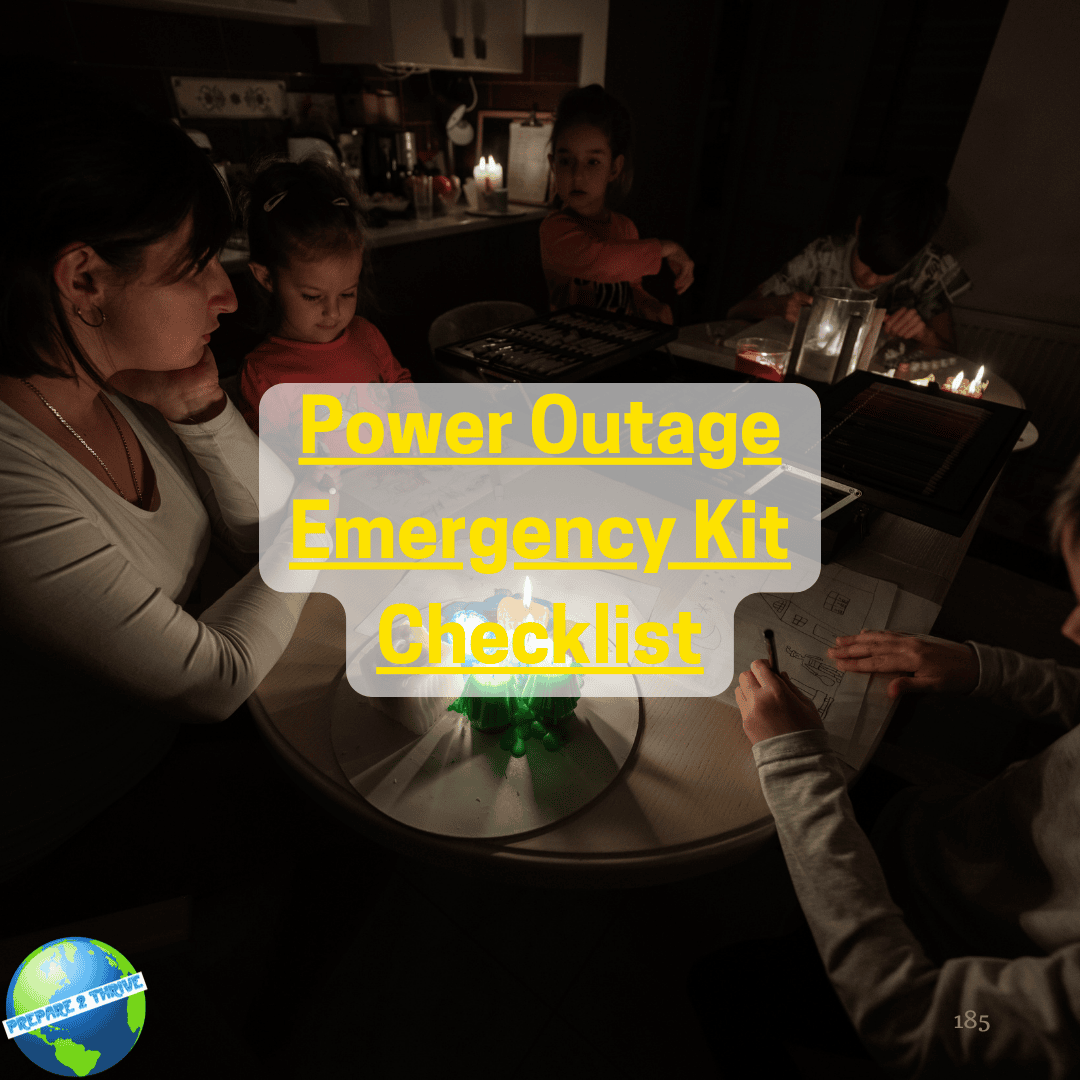In a world where severe weather often takes the spotlight as the primary culprit behind power outages, it's crucial to remember that the lights can flicker, and power can vanish for various reasons, regardless of the season. According to the U.S. Energy Information Administration, the average annual duration of power interruptions for U.S. customers is a staggering six hours. While extended outages may be infrequent, preparing for the unpredictable is your key to ensuring the best possible outcome. To assist you in this endeavour, we encourage you to utilize our Power Outage Emergency Kit Checklist as your guide to building the ideal emergency kit tailored to your needs.
Essentials for Every Season:
- Water: Ensure you have at least one gallon per person per day.
- Non-perishable Foods: Stock up on canned meats and vegetables, mini-boxes of cereal, dried fruits, jerky, nut butters, honey, preserves, trail mixes, granola bars, and plastic utensil packets.
- Can Opener: Don't forget a manual can opener.
- First Aid Kit: A well-stocked first aid kit is crucial for any emergency.
- Landline Telephone: Have a landline telephone with a basic plan, as it doesn't require electricity.
- Insurance and Health ID Copies: Store copies of important documents in a portable, waterproof container for accessibility and sharing with healthcare workers or insurance adjusters.
- Emergency Cash: Power outages can disrupt card payments, so keep some cash on hand.
- Personal Hygiene Products: Include extra soap, dry shampoo, deodorant, and feminine hygiene products.
- LED Flashlights: Ensure you have battery-powered or crank flashlights for illumination.
- Toilet Paper: Keep at least one roll.
- Duct Tape: One roll of duct tape for quick fixes.
- Aluminum Foil: Have a roll of aluminum foil on hand.
- Candles: Opt for candles that don't require holders, such as tea lights, votives, or jar candles.
- Weather Radio: Use a battery-operated or hand-crank weather radio with USB ports for charging digital devices.
- Power Banks and Charging Cables: Regularly check that your power banks and charging cables are fully charged.
- 120V Car Adapter: Use this for emergency phone charging in your car.
- Spare Car Keys: Keep a spare set of car keys handy.
- Books, Games, Puzzles: These items can boost morale during an evacuation.
Summer-Specific Items:
- Battery-Powered Fans: Stay cool with battery-powered fans.
Winter-Specific Items:
- Hand Warmers: Include single-use chemical or battery-operated hand warmers.
- Blankets: Prepare extra blankets for added warmth, especially in the event of burst pipes or basement flooding.
Baby Items:
- Diapers: Have a three-day supply of diapers, ensuring you rotate them as your baby grows.
- Wipes: Stock up on three days' worth of wipes.
- Formula: Keep a three-day supply of formula on hand.
- Baby Food: Ensure you have enough baby food for three days.
- Extra Clothing: Babies and toddlers may need frequent changes of clothes.
Pet Items:
- Pet Food: Store a three-day supply of pet food, preferably canned for longer shelf life.
- Water and Collapsible Bowl: Carry enough water for your pets for three days along with collapsible bowls.
- Safety Harnesses and Leashes: Secure your pets with safety harnesses and leashes.
- ID and Vaccination Tags: Ensure your pets have proper identification and up-to-date vaccination tags.
- Waste Bags: Keep waste bags for pet hygiene.
Extreme Items:
- Tent: Have a compact tent suitable for two people that's easy to carry.
- Water Purification Tablets: Include water purification tablets to ensure a drinkable water source.
- Rope: Pack a length of sturdy rope for various purposes in extreme situations.








